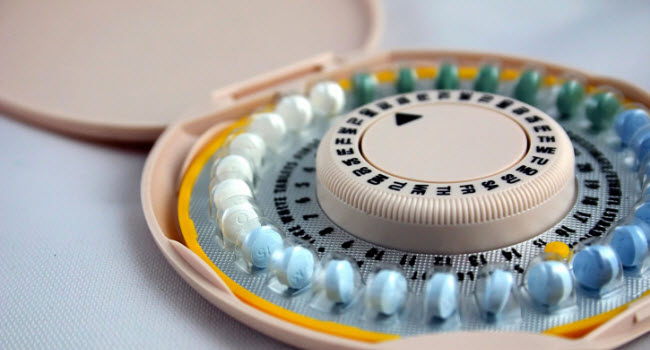
Sponsored Links
There are thousands of prescription medications, but when someone talks about “the pill,” you know what she means: the birth control pill. There are a lot of strong opinions floating around, but love it or hate it, it is still the most popular form of reversible contraception in the United States. In addition to being excellent contraception, it is also an effective treatment for heavy painful periods and PCOS. I see patients very frequently who have been on the pill forever, many since puberty. They all want to know when they should stop the pill and what on Earth will happen to their body when they do.
First off, if you are on the pill and loving it, with no side effects, there is no reason to stop “just because.” There is a common misconception that your body “needs a break” from the pill every few years. Medically, this isn’t true. Healthy, non-smoking women are safe to stay on the pill through menopause. The overall risk of major complication with the oral contraceptives are very low. One rare side effect is a slight increased risk of blood clots. By slight, I mean an increased risk of 3 women in 100,000. This risk is actually highest in the first three months on the pill, decreasing after that. Additionally, it takes your body about three months to adjust to getting on the pill and three months to adjust to getting off the pill. So, it doesn’t make a lot of sense to come off-and-on the pill just for “a break,” since about the time your body gets adjusted to being off the pill it would be time to go back on, and you blood clot risk would reset when you started back on the pill.
So why should you stop the pill? If you have a medical condition like high blood pressure or diabetes, your risk of blood clots begins to increase significantly over the age of 35, so at that point you should find another form of contraception. Other women choose to stop the pill due to side effects or the most obvious reason: trying to conceive.
After you stop the pill, it may take 4-6 weeks for your period to return. If it has not made its appearance by 3 months, that is abnormal and warrants a call to your doctor. The majority of women may not feel a huge difference but may notice some mild symptoms as the body adjusts to not being on the pill.
So what exactly is going to happen to your body when you stop taking it? The pill works by interrupting the communication between your brain and ovaries and replacing your normal hormonal fluctuations with the even level of hormones in the pill. For many women, this reduces the intensity of their PMS symptoms and makes their period lighter and less crampy. These beneficial effects go away when the pill is removed. This phenomenon is why you will often hear women blame a tubal ligation for their heavy periods. They will complain that their periods used to be light, but after their tubal they are heavy and awful. It’s not that the tubal that caused the heavy periods, it’s that they stopped their pill and it was treating those symptoms and now their period is back with vengeance.
Advertisements
If you’re coming off of the pill to try to conceive, the general recommendation is to stop the pill (and switch to non-hormonal methods like condoms) about three months before you want to start trying. One of the effects of oral contraceptives is decreased levels of B-vitamins and folic acid in your body. So it is especially important to start on a prenatal vitamin 3-6 months before trying to conceive to help prevent birth defects and prepare your body for the nutritional drain of pregnancy. And, heads up – getting pregnant the first month off the pill does have a slight increased risk of twins. I guess some ovaries get overly excited at finally having the chance to ovulate and pop out two eggs instead of one.
The pill also suppresses your testosterone, which means that when you go off the pill you may notice a flare in acne and few extra chin hairs to pluck. A benefit, though, is your libido will usually increase, which can be helpful if your intent for stopping the pill is getting pregnant. The hormonal shift can also trigger hair loss in some women (but usually resolves within 3-6 months).
What will quitting the pill do to the number on scale? The birth control pill is weight-neutral. In studies a very small number women gained weight on the pill, and an equally small number lost weight, with the great majority staying the same. If you were one of the small numbers who lost weight on the pill, then you might notice a small gain when stopping. One caution would be that PMS symptoms may return when off the pill, so watch out for chocolate cravings and bloating the week before your period.
Birth control pills prevent ovulation and reduce the incidence of ovarian cysts. Off the pill, you may notice mid-cycle pain that is common with ovulation. If the pain persists and worsens through the next cycle, see your doctor.
The birth control pill works great for contraception and for reducing many period symptoms. If you like it and it works for you, there’s no need to make a change. But if it’s time to move on, know that coming off may take a little adjustment. Your period should be at its “new normal” within three months, and then you’ll be able to tell how if the pill-free life is working for you.
by Heather Rupe, DOBoard-certified OB/GYN



Comments